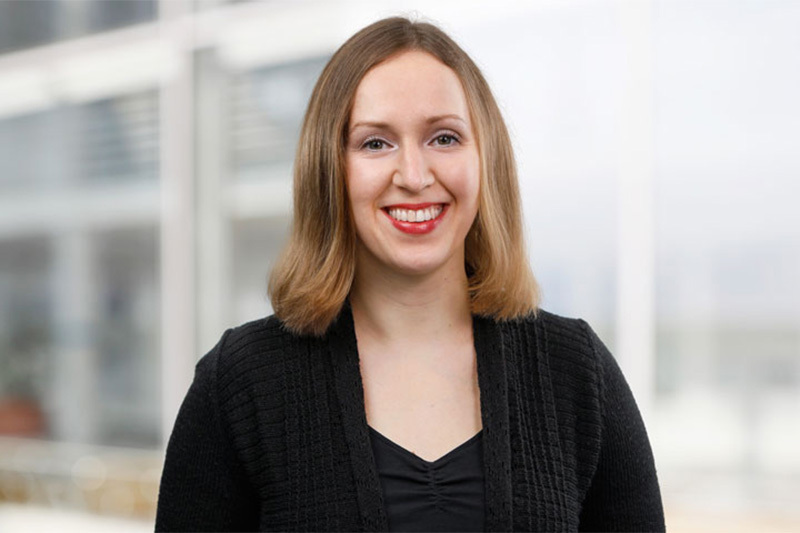News
Established areas of focus, new approach
[02.06.2025]Success for research group leader PD Dr. Laura Froehlich: As interim professor she now ensures continuity in the field of social psychology – while also setting new priorities, for example in the Master's program in Business Psychology.
 Photo: rudi_suardi/E+/Getty Images
Photo: rudi_suardi/E+/Getty Images
During Prof. Dr. Stefan Stürmer's term as president of the FernUniversität in Hagen, PD Dr. Laura Froehlich is heading the chair of Social Psychology. "It's an ideal constellation," says the interim professor. "It ensures continuity in the research topics."
Laura Froehlich is very familiar with the team. From 2015 to 2021, she worked with Professor Stürmer as a postdoctoral researcher in research and teaching. In 2021, she transitioned to the CATALPA Center (Center of Advanced Technology for Assisted Learning and Predictive Analytics) to continue her academic career. In 2023, her junior research group, "Stereotype Threat," received a positive interim evaluation, and she completed her habilitation at the Faculty of Psychology. "The team already knows me, so the transition is easier," says Froehlich about the chair of Social Psychology. "The faculty has also given me a great welcome and provides me with a lot of support." This means that students can also rely on consistency in the curriculum. "The team is involved in many modules in the bachelor's and master's programs in psychology. There are many effective teaching formats,” Froehlich explains. However, the Master's program in Business Psychology includes new content, as it was recently launched. Froehlich designed an introduction to psychology for economists, and together with her colleagues, Prof. Dr. Angela Dorrough and Prof. Dr. Robert Gaschler, she offers a module on sustainability and intercultural communication.
 Photo: Hardy Welsch
Photo: Hardy Welsch
“I am delighted that the university has placed its trust in me. A lot can be achieved in the years I will be spending as interim professor, working with such a great team.”
PD Dr. Laura Froehlich
Integrating Research and Teaching
Laura Froehlich is also using her time as interim professor to conduct research. She is interested in how diversity affects educational processes, concerning ethnic and socioeconomic background - not only in schools, but also in higher education. "Research and teaching are integrated into the chair's introductory modules, and we use learning analytics in interdisciplinary research projects at CATALPA," the psychologist explains. For instance, a DFG-funded project led by Froehlich and Stefan Stürmer analyzes how students collaborate on writing scientific texts within virtual groups. "How do people work together? What backgrounds do they bring to the group? How well do the groups function?" are the key questions.
The advantage? Students contribute to both their own learning success and scientific knowledge. The FernUniversität offers a special research environment with its diverse students and the opportunity to use learning analytics, i.e., the evaluation of data from digital teaching and learning systems. "It's great that we have so many students from diverse backgrounds here. This enables us to use rich behavioral data for research and the further development of teaching."
Inequality in international comparison
"I also conduct research on gender inequality," says Froehlich, naming another of her areas of focus. "For example, how is work divided between men and women at work or at home? What role do social norms and stereotypes play in this?" This area of research also resonates with the chair's team: "Many members of the team are interested in gender-related topics, and several doctoral theses are being written in this area."
In collaboration with her colleague, Professor Angela Dorrough, the psychologist also takes a cross-national, cross-cultural perspective on gender equality. "How do the social roles of men and women differ depending on the country you live in?" The researchers are taking a close look — from Norway, where there are hardly any gender differences, to Indonesia, where there is great inequality.
Continuity at CATALPA
Froehlich has contributed her expertise to the CATALPA reseach center since 2021 as head of the “Stereotype Threat” research group, which emerged from the junior research group of the same name. She will continue to investigate how stereotypes around gender, age, and ethnicity influence academic success and social integration.


